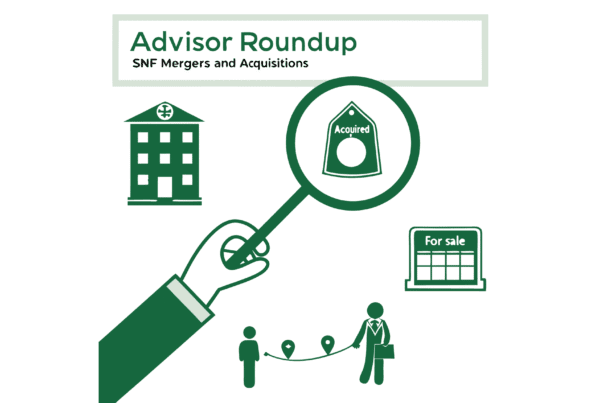The market for plastic surgery practices in Georgia is more active than ever, driven by strong patient demand and interest from new types of buyers. For practice owners, this presents a significant opportunity. However, turning that opportunity into a successful sale requires a strategic approach. This guide provides a clear overview of the market, key considerations for a Georgia-based practice, and how to navigate the sale process to protect your legacy and financial future.
Market Overview
The demand for plastic surgery is strong, both nationally and here in Georgia. The overall medical aesthetics market is projected to grow steadily, with a compound annual growth rate of 4.0% through 2032. This is not just a trend. It’s a fundamental shift driven by lasting consumer interest in both surgical and non-surgical procedures.
This growth has attracted significant attention from buyers. We see an increasing number of private equity firms and established cosmetic groups looking to partner with or acquire successful practices. For a seller, this means you likely have more options than ever before.
Located in the South Atlantic region, which the American Society of Plastic Surgeons identifies as a high-growth area for cosmetic procedures, Georgia is a particularly attractive market. Buyers are actively looking for well-run practices here. Understanding this landscape is the first step toward a successful sale.
Key Considerations for Georgia Practices
When selling a plastic surgery practice in Georgia, a few specific factors require your attention. Getting these right from the start can make the difference between a smooth process and a stressful one.
Navigating Georgia’s Regulations
Compliance is not just an internal issue. It is a major focus for any serious buyer. In Georgia, you must have your records in order for the Georgia Composite Medical Board. You must also have a clear plan for patient medical records, as state law dictates a retention period. A buyer’s due diligence will heavily scrutinize your compliance.
Financial Readiness
Buyers want to see clean, clear financials. This often means going beyond your standard profit and loss statement. We find that many owners run personal expenses through the business or pay themselves a salary that isn’t at market rate. Before a sale, these need to be adjusted to show the true profitability of your practice. This process, called normalization, gives buyers a clear picture of the investment.
Structuring the Deal
You can sell your practice’s assets or you can sell the company stock. Each path has very different implications for your taxes and future liabilities. An asset sale is more common and often preferred by buyers, but the right choice depends entirely on your specific situation and goals. Making this decision requires careful planning.
Current Market Activity
The interest in Georgia’s plastic surgery market is not theoretical. It is happening now. Private equity-backed groups are actively partnering with leading practices across the state. For example, groups like Ascend Plastic Surgery Partners and Olympus Cosmetic Group are building national platforms by acquiring successful local practices. Closer to home, United Aesthetics Alliance recently partnered with The Swan Center for Plastic Surgery in the Atlanta area. This activity shows that well-run practices are in high demand. These buyers are looking for strong platforms to build upon, and they are willing to pay for quality and growth potential. This creates a competitive environment for sellers who are properly prepared.
The Four Stages of a Practice Sale
Selling your practice follows a structured process. While every sale is unique, we see most successful transactions move through four main stages. Understanding them helps you prepare for what is ahead.
- Preparation and Valuation. This is the foundational stage. It involves organizing your financials, understanding what your practice is truly worth to different types of buyers, and identifying any operational issues to fix before going to market.
- Confidential Marketing. Your practice is confidentially introduced to a curated list of qualified buyers. The goal here is not to just find a buyer, but to find the right buyer who aligns with your goals and can generate competitive offers.
- Negotiation and Due Diligence. After receiving initial offers, you negotiate the key terms. Once a letter of intent is signed, the buyer conducts a deep investigation of your practice’s financials, legal standing, and operations. This is often the most intensive phase.
- Closing and Transition. This involves finalizing legal documents, closing the transaction, and executing the plan for a smooth transition for you, your staff, and your patients.
How Your Practice is Valued
One of the biggest questions owners have is, “What is my practice worth?” The answer is more complex than a simple rule of thumb. Sophisticated buyers value your practice based on its Adjusted EBITDA, which stands for Earnings Before Interest, Taxes, Depreciation, and Amortization. It represents your practice’s true cash flow. We calculate this by taking your net income and adding back owner-specific expenses and non-cash items.
This Adjusted EBITDA is then multiplied by a number, the “multiple,” to determine your practice’s enterprise value. Multiples can range from 4x to over 10x, and they are not random. They are driven by specific risk and growth factors.
| Factor | Lower Multiple | Higher Multiple |
|---|---|---|
| Provider Model | Relies solely on the owner | Associate-driven with multiple providers |
| Revenue Mix | Mostly surgical procedures | Balanced mix of surgical and non-surgical/recurring revenue |
| Growth | Flat or slow growth | Demonstrable history of strong, consistent growth |
| Infrastructure | Basic operations | Professionalized management and systems |
A proper valuation tells the story of your practice in a way that sophisticated buyers understand and value.
Planning for Life After the Sale
A successful transaction is not just about the sale price. It is also about setting up a successful future for yourself and your team. Planning for the post-sale period should begin long before you close the deal.
Your Future Role
Do you want to retire immediately, or do you want to continue practicing for a few more years? Many buyers, especially private equity groups, prefer for the selling physician to stay on, at least for a transition period. The terms of your continued employment, including compensation and clinical autonomy, are key points to negotiate as part of the main deal.
Protecting Your Team and Legacy
Your staff and patients are a huge part of the value you have built. A good transition plan ensures they are taken care of. This involves communicating the change effectively and working with the buyer to maintain the culture that made your practice successful. The right partner will want to preserve your legacy, not erase it.
Understanding Your Proceeds
The number on the offer letter is not what you will deposit in your bank account. You need to account for taxes, legal fees, and any portion of the deal structured as an earnout (paid later) or rollover equity (retained ownership). Structuring the sale for optimal after-tax returns is an art. It requires careful planning from the very beginning.
Frequently Asked Questions
What is the current market trend for selling plastic surgery practices in Georgia?
The market for plastic surgery practices in Georgia is very active with strong patient demand and increasing interest from buyers, including private equity firms and cosmetic groups. The South Atlantic region, including Georgia, is identified as a high-growth area for cosmetic procedures, making it an attractive market for sellers.
What are the key regulatory considerations when selling a plastic surgery practice in Georgia?
Sellers must ensure compliance with Georgia’s regulations, including maintaining proper records for the Georgia Composite Medical Board and adhering to state laws on patient medical record retention. Buyers will scrutinize these compliance aspects during due diligence.
How is the valuation of a plastic surgery practice in Georgia determined?
Valuation is primarily based on Adjusted EBITDA (Earnings Before Interest, Taxes, Depreciation, and Amortization), reflecting the practice’s true cash flow. This Adjusted EBITDA is multiplied by a multiple that ranges from 4x to over 10x, influenced by factors such as provider model, revenue mix, growth history, and operational infrastructure.
What are the typical stages involved in selling a plastic surgery practice in Georgia?
The sale process typically includes four main stages: 1) Preparation and Valuation – organizing financials and assessing practice value, 2) Confidential Marketing – introducing the practice to qualified buyers, 3) Negotiation and Due Diligence – negotiating terms and detailed investigation by the buyer, and 4) Closing and Transition – finalizing legal documents and ensuring a smooth transition for all stakeholders.
What should sellers consider about their role and legacy after selling their plastic surgery practice in Georgia?
Sellers should decide if they want to retire immediately or continue practicing during a transition period, which is often preferred by buyers. They should negotiate terms for continued employment if applicable and focus on protecting their staff and patients by ensuring effective communication and maintaining the practice culture. Planning for after-sale proceeds and tax implications is also critical for maximizing financial outcomes.



